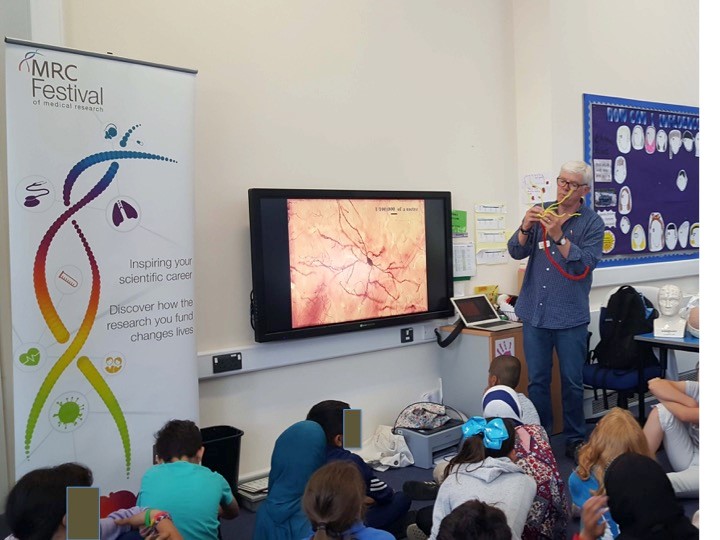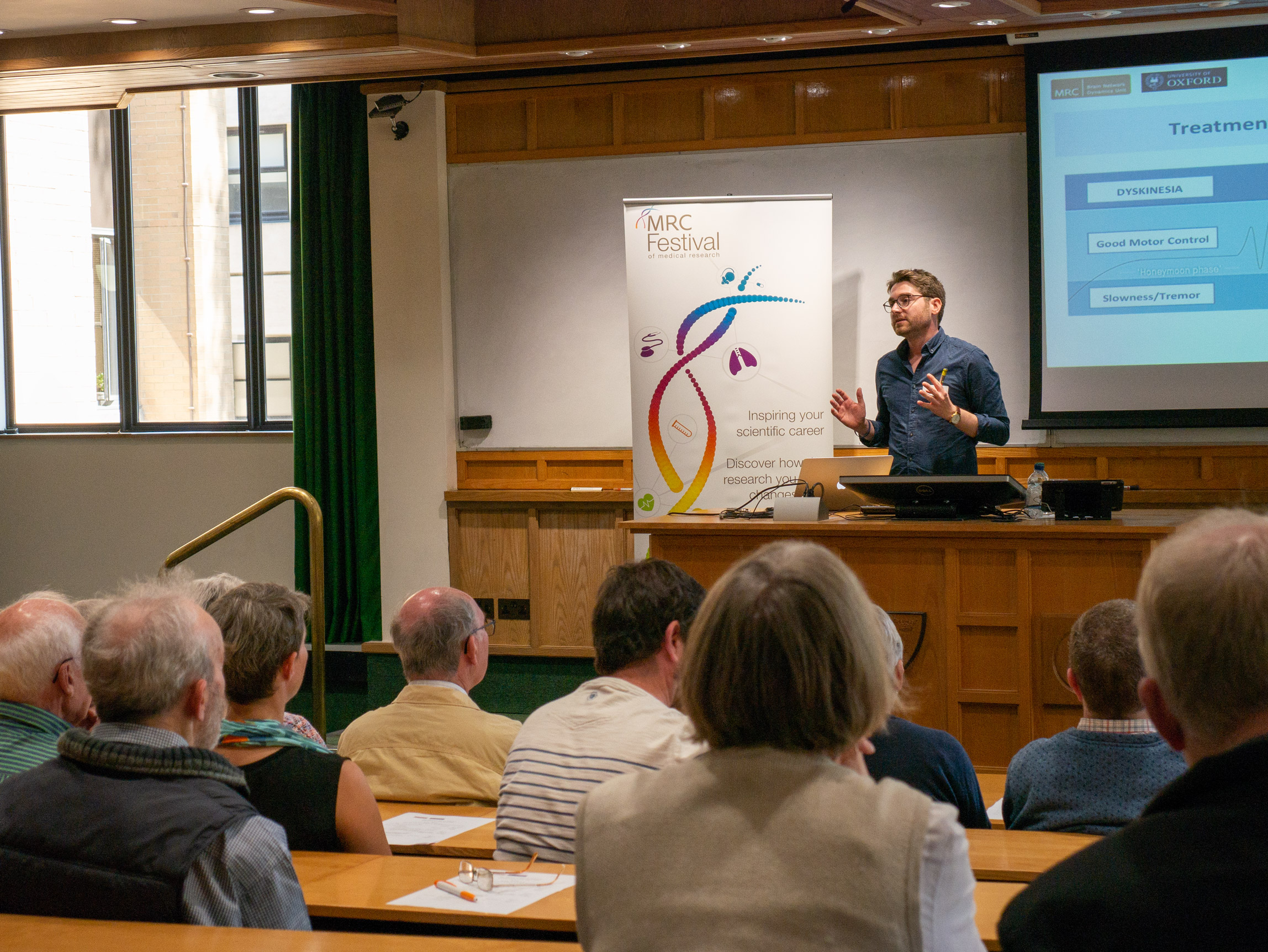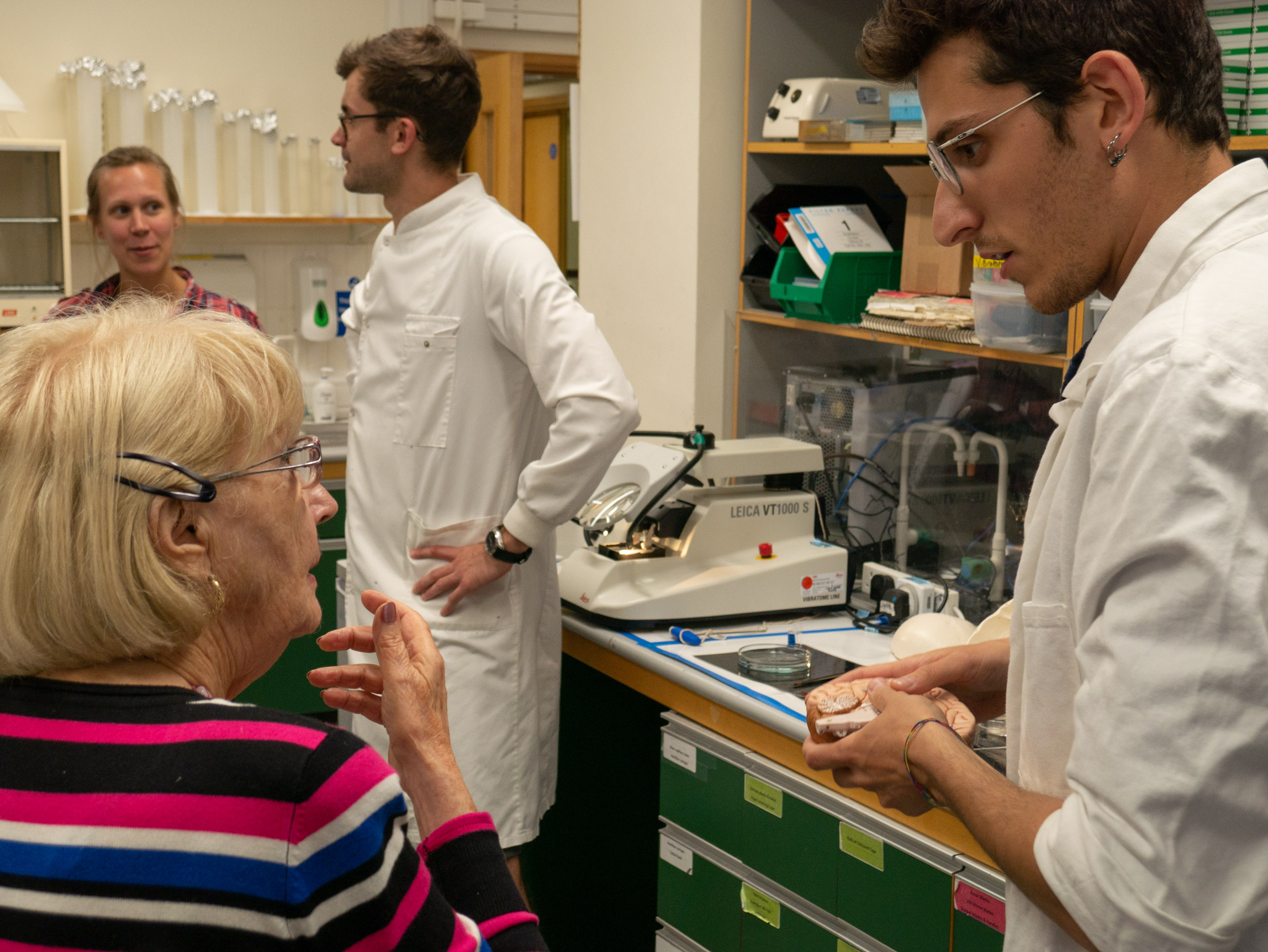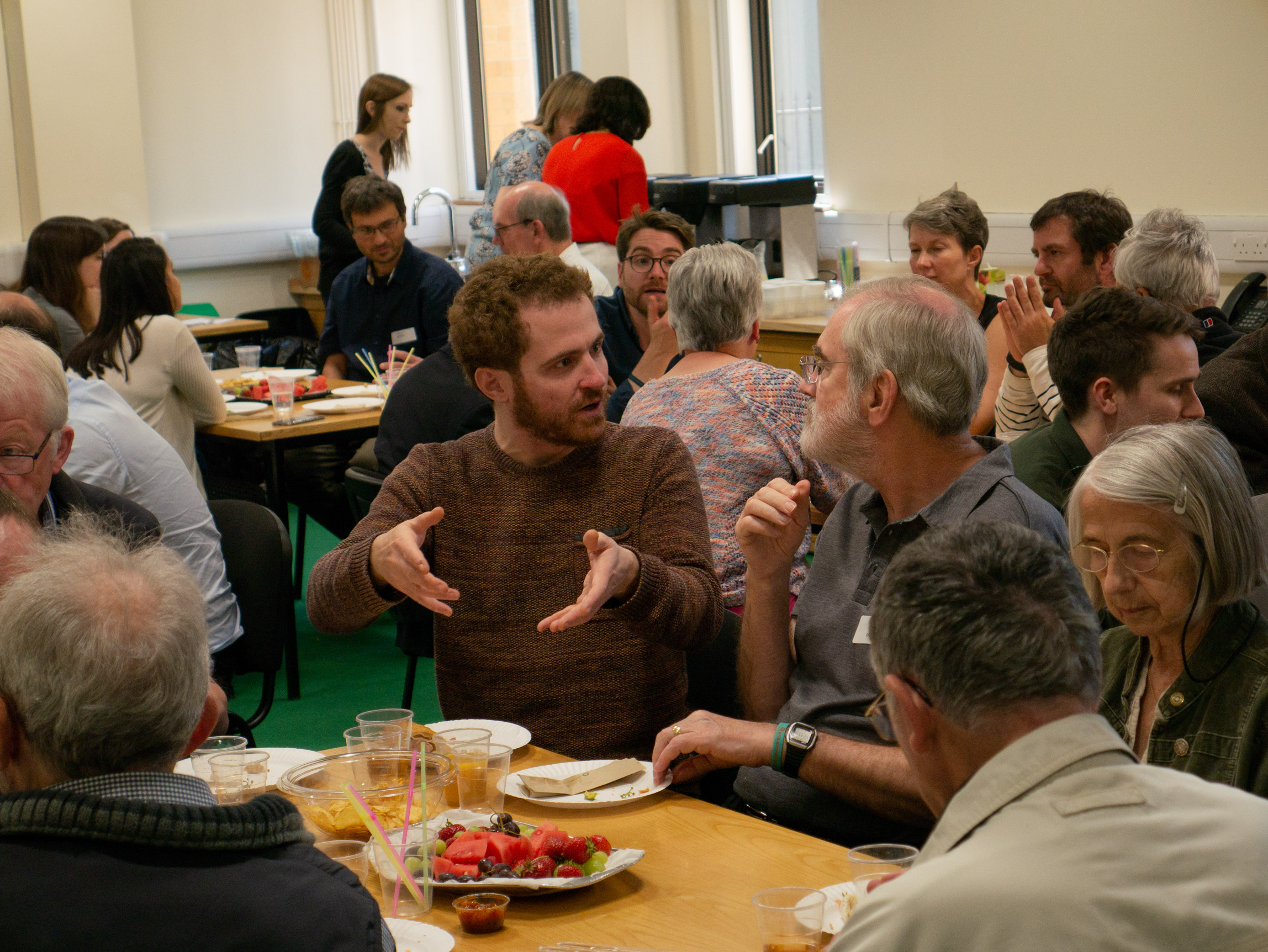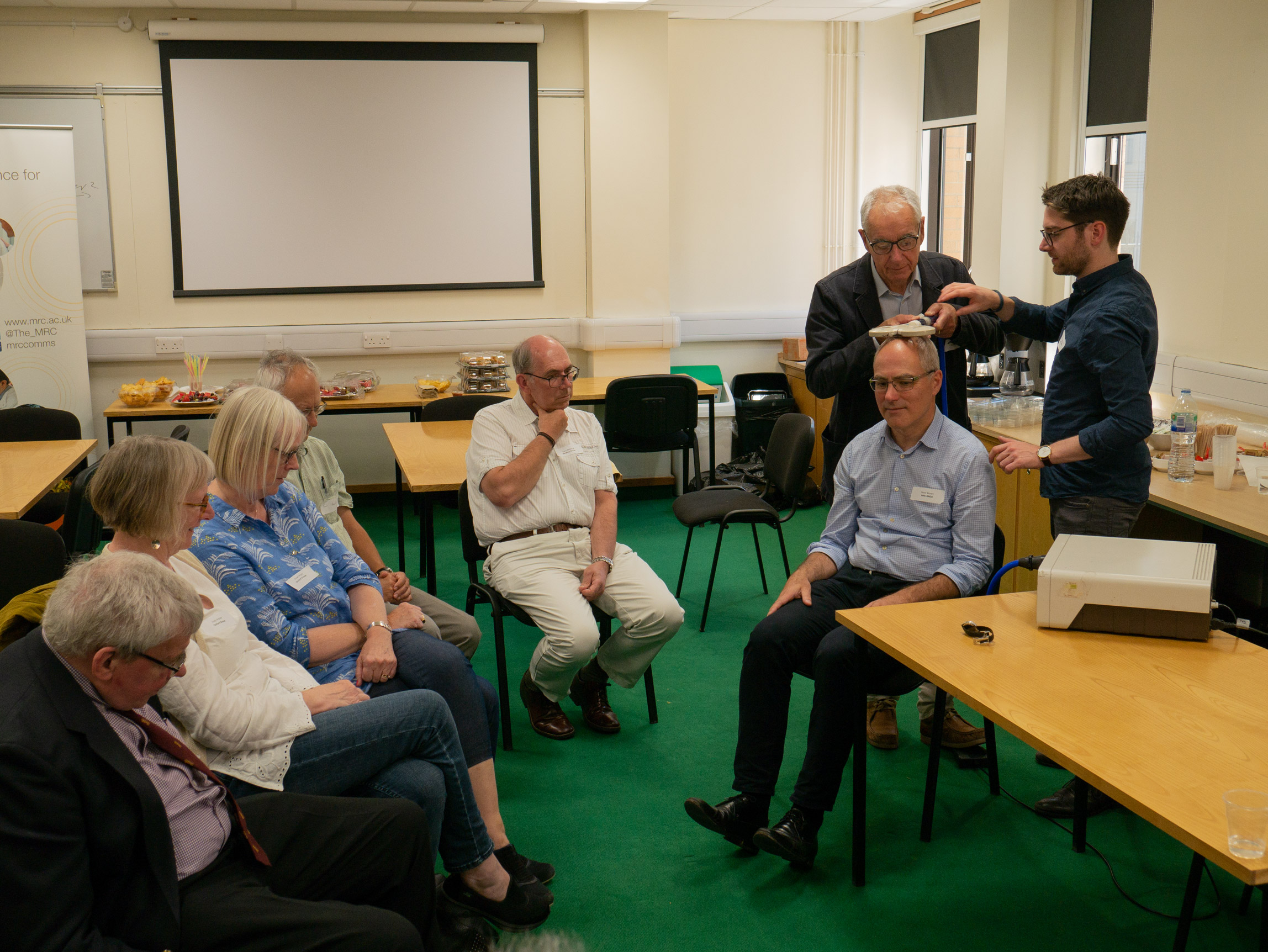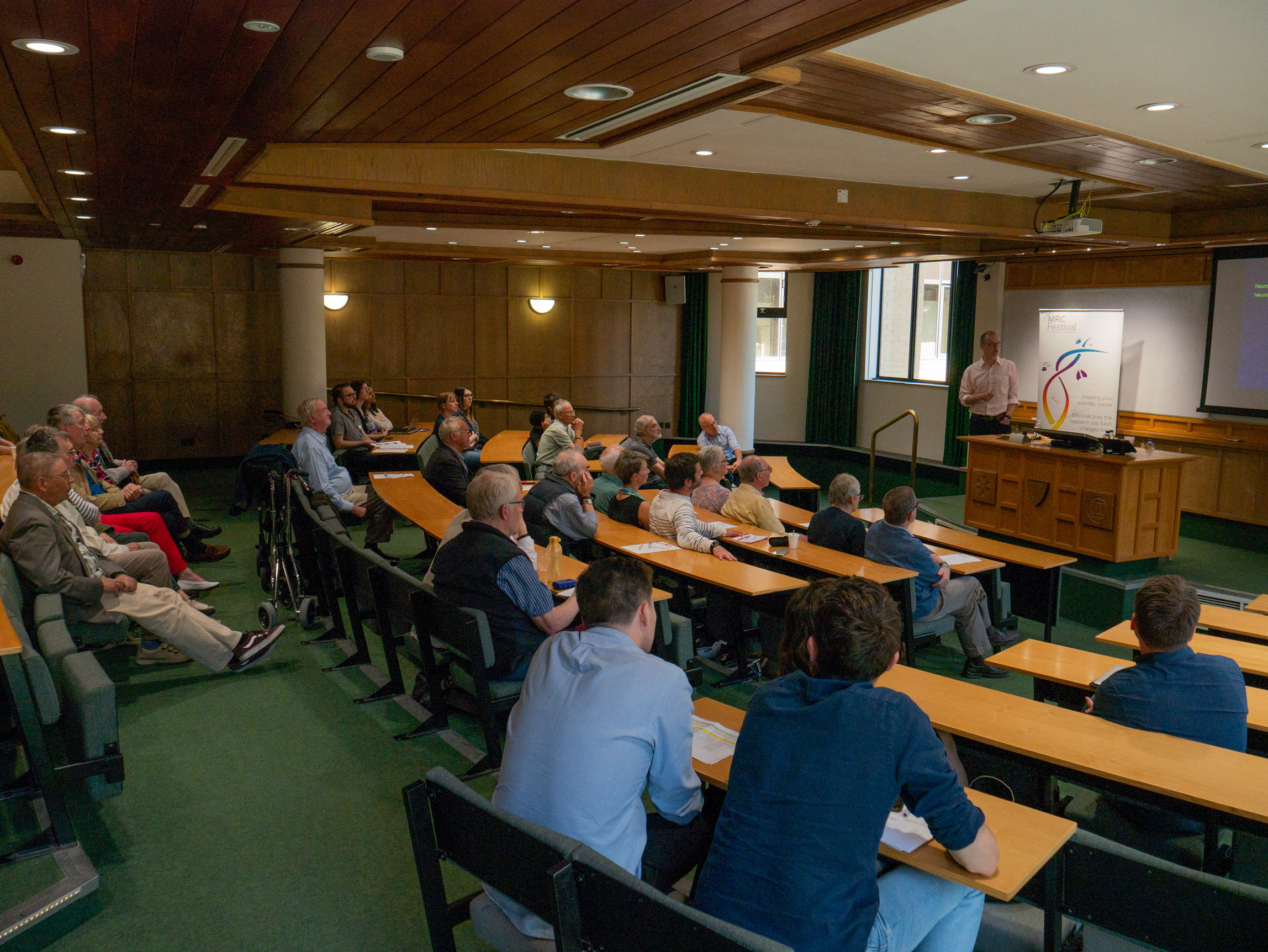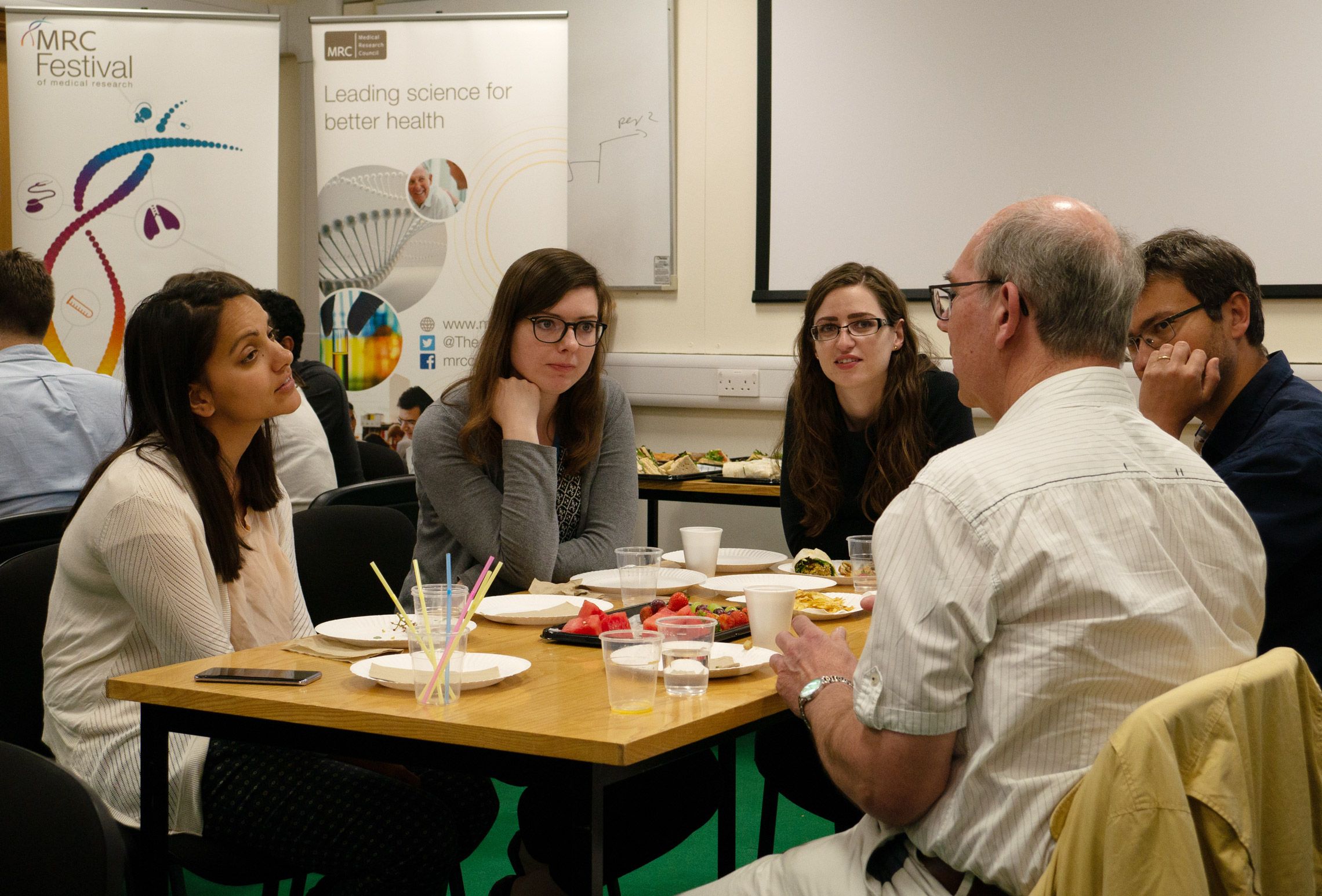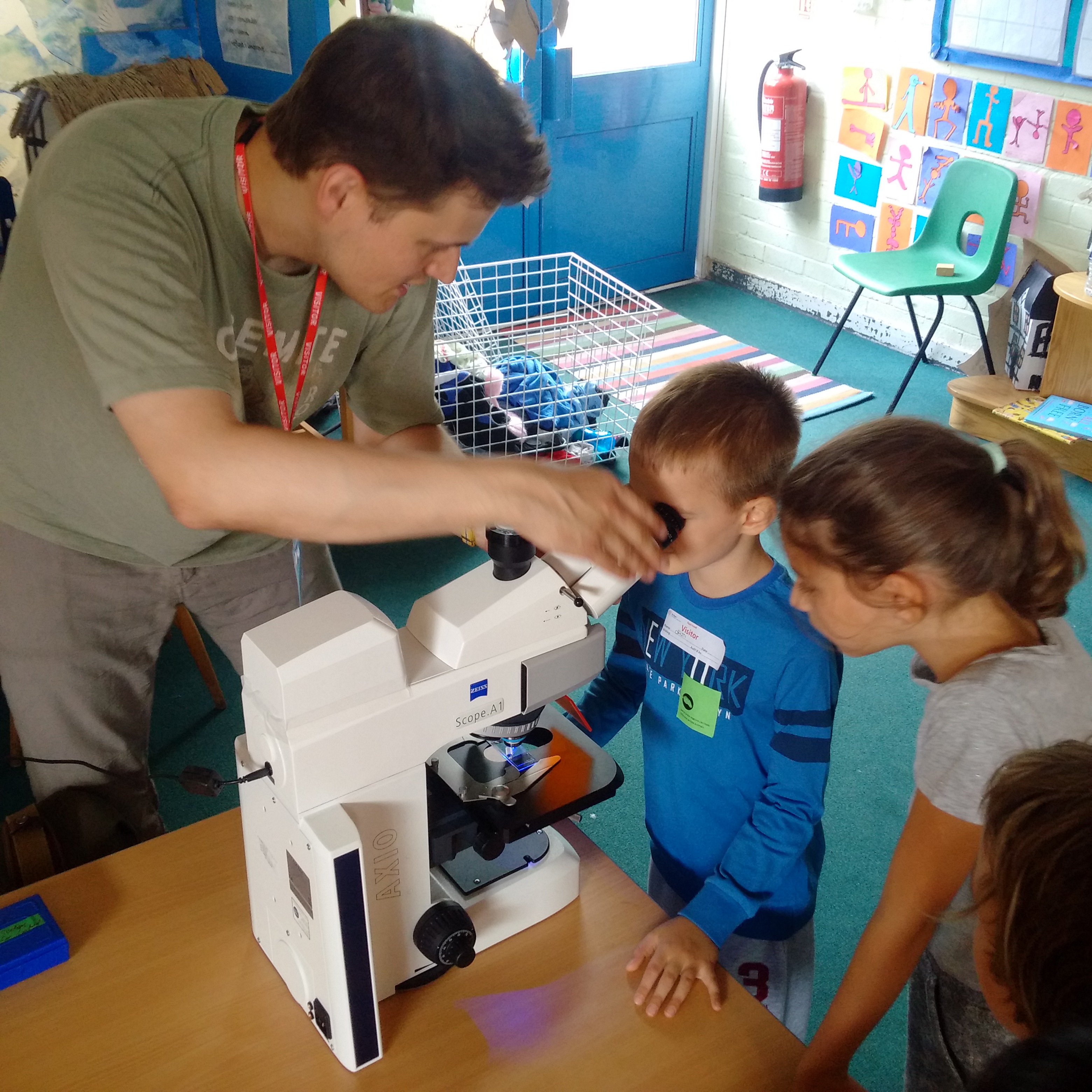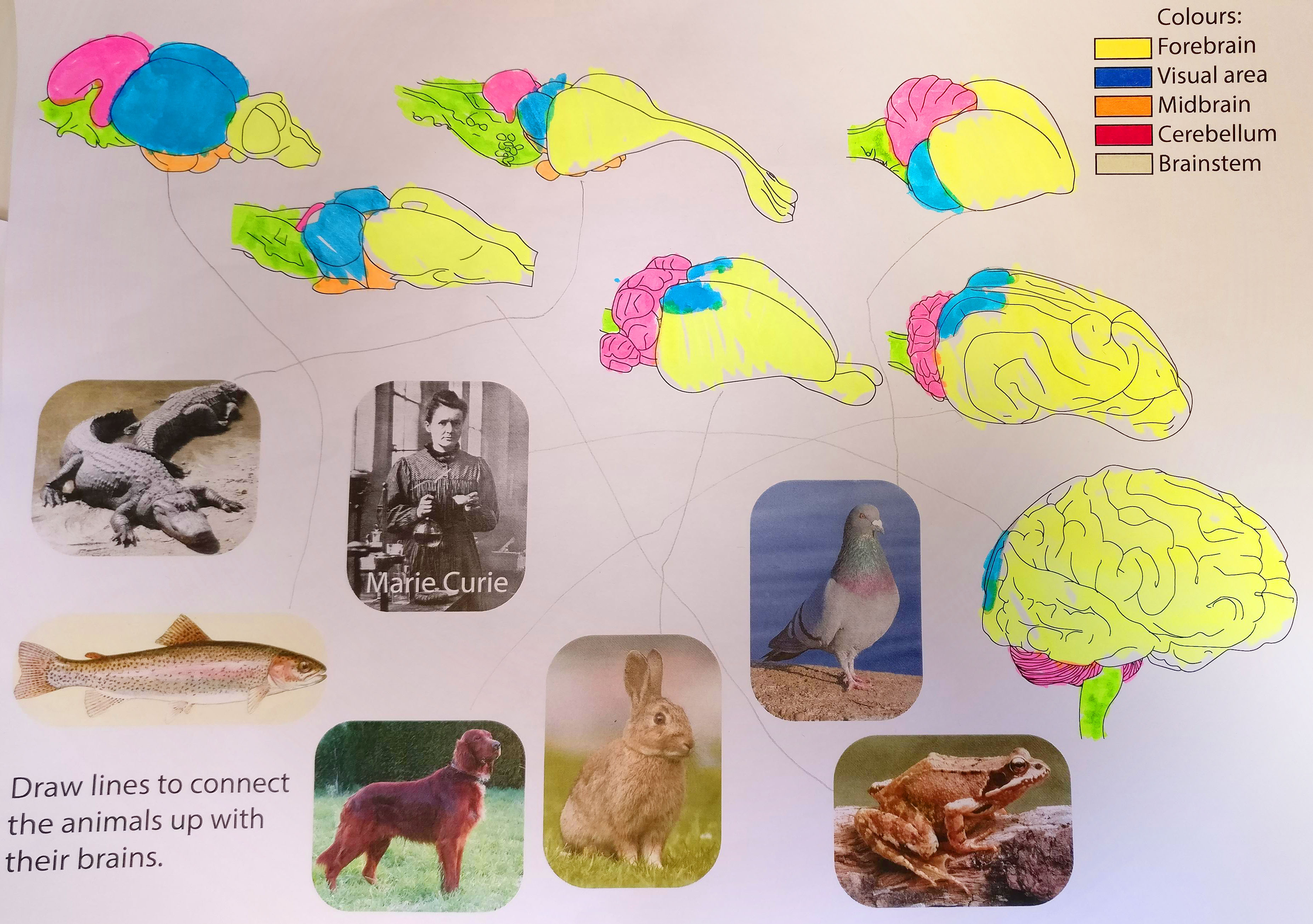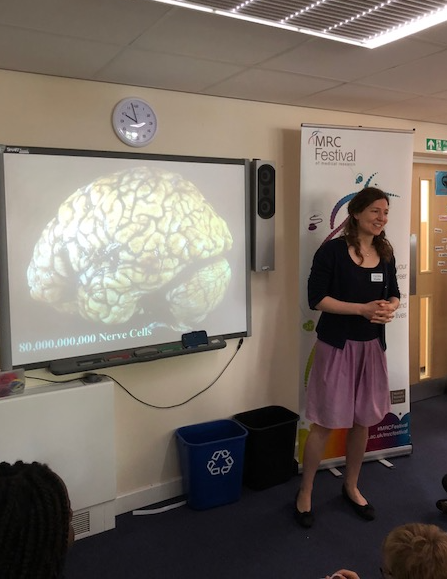
On 20th June, Unit scientist Dr Petra Fischer and Associate Unit Member Professor Paul Bolam visited pupils at Larkrise Primary School in central Oxford, to help them learn more about science, scientists, and how the brain works.
Armed with a variety of eye-catching demonstration aids taken from the Unit’s Public Engagement Toolbox, Petra and Paul spent the morning with two classes of children from Year 6. They introduced the children to what a scientist is and does, and then lead discussions of some key messages about nerve cells and their networks, the electricity and connections of the brain, and diseases of the brain. The children then dove into some practical sessions, such as building pipe cleaner models of nerve cells, and exploring the Unit’s brain tissue specimens. At the end of the visit, the children were given some colourful mementoes of the experience.
The school visit was one of many public engagement events led by the Medical Research Council and held across the country from 14th-24th June 2018 as part of the MRC Festival of Medical Research.
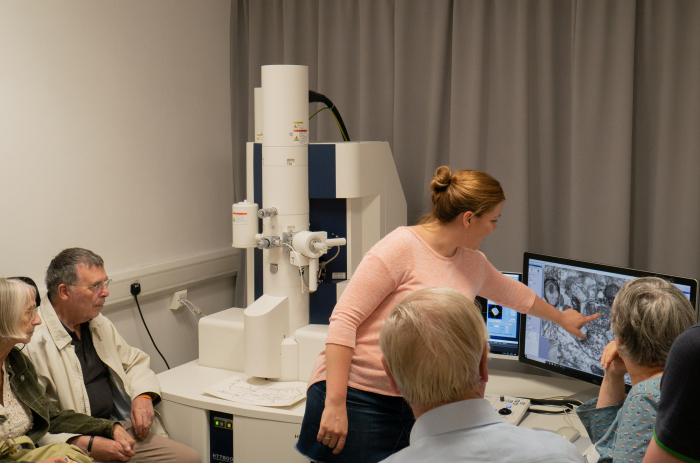
Yesterday, the MRC Brain Network Dynamics Unit welcomed lay members of the Oxford, Banbury and Reading groups of the charity Parkinson’s UK to learn more about the Unit’s research on the causes and treatment of Parkinson’s disease.
The visit began with Unit Director Peter Brown highlighting the wider work of the Medical Research Council, the Unit’s scientific mission, and the joint commitment to public engagement with research. This was followed by short presentations from Clinical Research Fellow Gerd Tinkhauser on Deep Brain Stimulation as a therapy for Parkinson’s, and from Unit Deputy Director Peter Magill on the use of animals in Parkinson’s research. Each of the talks was integrated with a lively discussion session in which the visitors’ questions came thick and fast, stimulating further conversations about Unit discoveries made in the clinic and at the lab bench.
After lunch on site with a group of the Unit’s early-career scientists, visitors were offered a tour of the Unit’s laboratories and microscope facilities, led by members of the Magill, Dodson and Sharott Groups, where the visitors could see some ongoing research for themselves. Those not attending the lab tours were treated to a live demonstration of Transcranial Magnetic Stimulation of the brain, as actioned on the Unit Director! The visit concluded with refreshments, a final Q & A session, and a chance for the visitors to give their feedback to the Unit team. The Unit also took the opportunity to promote its local networks for Patient and Public Involvement (PPI) in research.
Peter Magill commented “People affected by Parkinson’s are among the key stakeholders of the Unit, and the open day was another valuable opportunity for us to share our research with them. Our visitors’ questions and comments were both insightful and motivating, helping us to reflect on what’s most important.”
The Unit’s open day was one of many public engagement events led by the Medical Research Council and held across the country from 14th-24th June 2018 as part of the MRC Festival of Medical Research.
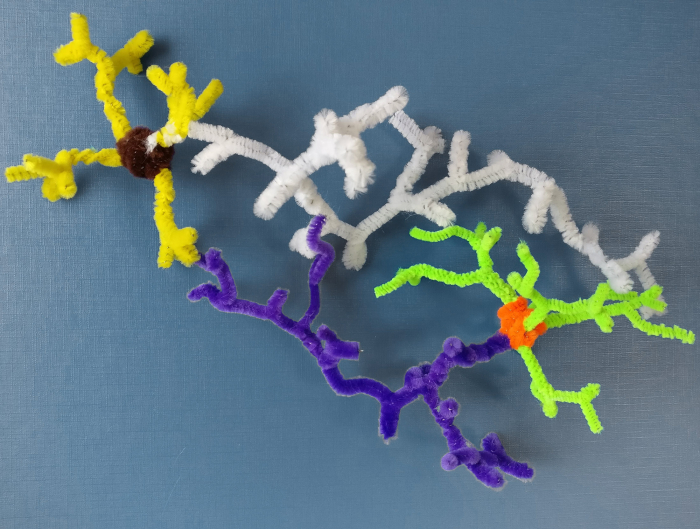
In May and June 2018, Unit Research Support Manager Ben Micklem visited St. Nicholas's Primary School in Oxford to run two hour-long afterschool Science Club sessions for children in Years 3 and 4 (7-9 years old) .
The first session focussed on memory, and a comparison between human memory and storage of data on a computer's hard disk. The children made their own brain cells from pipe cleaners, and learned about the 'listening arms' and 'sending arms' of nerve cells (that is, the dendrites and axons of neurons). They were also introduced to the idea that human memory is stored in the strengths of the connections between networks of brain cells, and the timing of those cells 'talking' is very important. Learning that the human brain contains billions of cells was another clear highlight for the children.
Each child then contrasted the brain's method of storing information with a computer hard drive. They were each given a hard drive, which they opened themselves with Torx screwdrivers, to examine the platters and the read/write heads. They learned about the tracks of data around the disk, and the change in magnetic charge on the surface being created or read by the head to store binary data. Numbers again impressed them, with around 96 trillion patches of magnetic polarity, each one storing a 'bit', giving the largest hard drive 12 terabytes of storage.
The second session covered the variation in brain shape and size across different species of vertebrates, and how the areas of the brain were enlarged and specialised depending on the animals' behaviours and ecological niches. The children watched videos of some of the animals, then learned about the roles of different areas of the brain, and observed how they were different or conserved in fish, reptiles, amphibians, birds, rodents, dogs and humans by examining the brain models that Ben brought in. The children then completed some fun worksheets with colour-coded regions of the brains to take home.
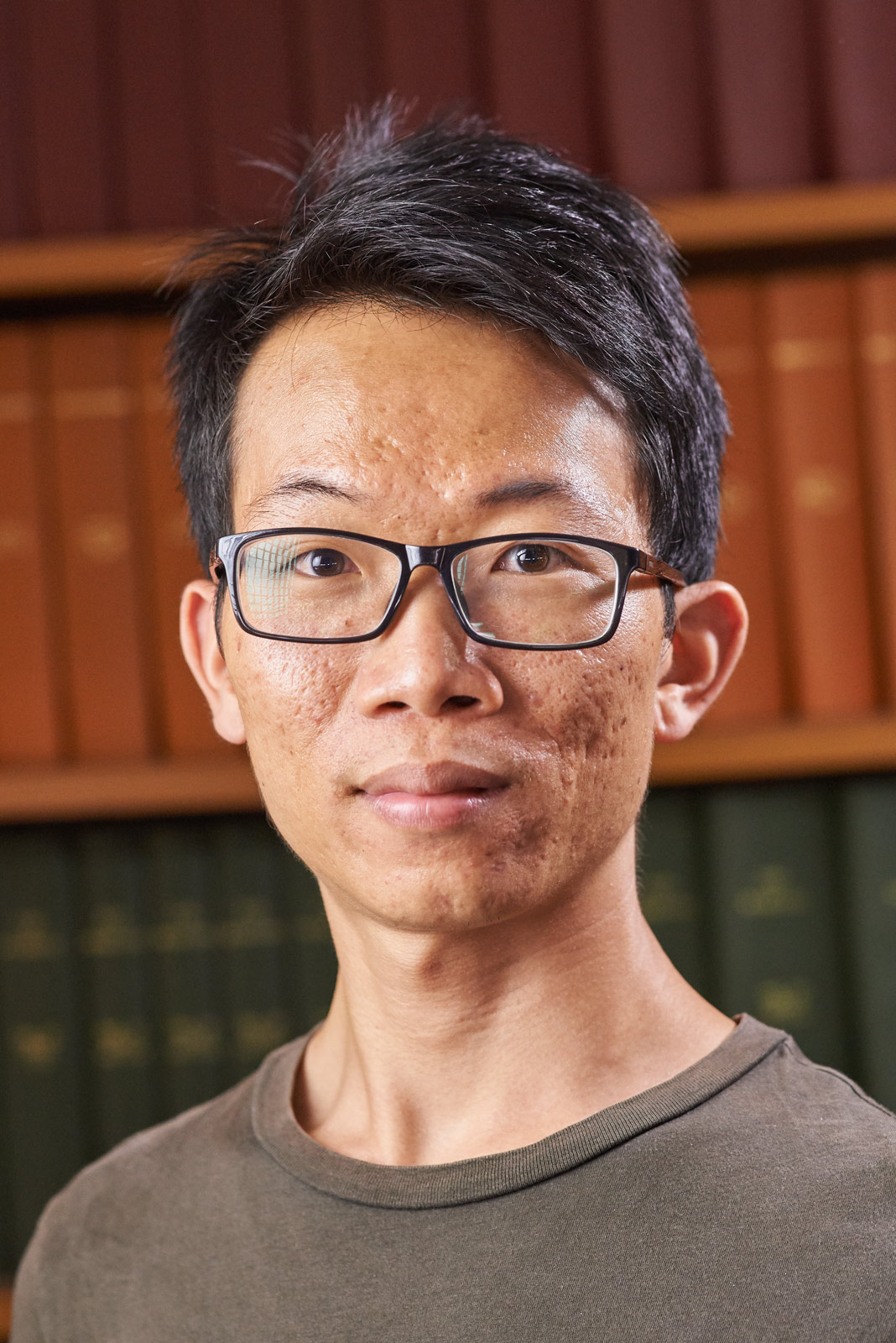
We are pleased to welcome Dr Shenghong He to the Unit as a Postdoctoral Scientist in Dr Huiling Tan’s Group.
Shenghong graduated with a D.Phil. in Engineering from the South China University of Technology, China, in December 2017. His graduate work mainly focused on developing real-time brain-machine interface (BMI) methods and their application using electroencephalography and electrooculography.
Here in the Unit, Shenghong’s research will be focused on developing BMI systems based on subcortical local field potentials recorded from people with Parkinson’s, and testing the efficacy of this new BMI system in neuroprosthetic control and neurofeedback training.
Unit D.Phil. student Benoit Duchet’s latest research has been selected as a featured oral presentation at this year's annual meeting of the Organization for Computational Neuroscience, to be held in Seattle, USA, in July. Out of 100+ submissions for oral presentations, only 3 were chosen to be featured at the meeting.
Benoit's work, entitled “Response to Deep Brain Stimulation in Essential Tremor: Predictions beyond noisy data with a Wilson-Cowan model”, is the result of ongoing collaborations with Unit postdoctoral scientists Dr Gihan Weerasinghe and Dr Hayriye Cagnan, as well as with mathematician Dr Christian Bick at the University of Oxford. The research is supervised by Unit Programme Leader Professor Rafal Bogacz.
Focusing on Essential Tremor, the team suggests a method to study the response to Deep Brain Stimulation along both the phase axis and amplitude axis of the tremor oscillation. Because of noise in recordings and experimental limitations, the amplitude axis is especially difficult to access by direct data analysis in the phasic paradigm. Going forward, the team will use their method to explore strategies for optimising closed-loop Deep Brain Stimulation as a treatment for Essential Tremor and Parkinson’s disease.
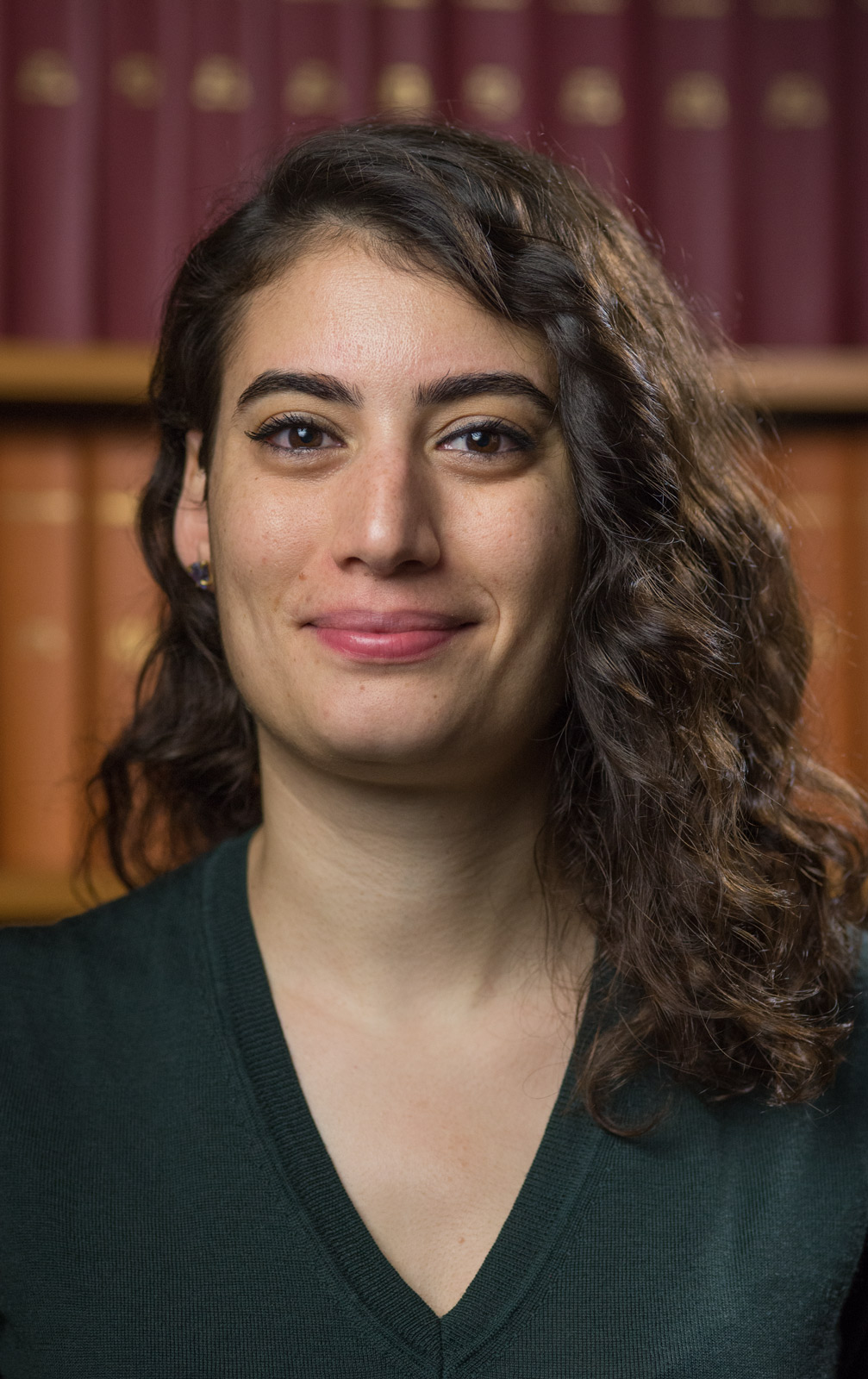
Many congratulations to Unit scientist Dr Hayriye Cagnan who has won a Medical Research Council Career Development Award. These prestigious 5-year awards are designed to support talented postdoctoral researchers to lead their own research plans and establish their own research teams, thereby facilitating their transition to independent investigators. Hayriye will take up her Career Development Award in June 2018, and will be hosted at the MRC Brain Network Dynamics Unit and the Nuffield Department of Clinical Neurosciences.
Currently, Hayriye is a Senior Postdoctoral Neuroscientist in Dr Andrew Sharott’s Group, where she has been examining transient neural dynamics across the cortico-basal ganglia circuit. As part of Hayriye’s new research programme funded by the Award, she will develop theoretical tools and experimental approaches to elucidate how different brain regions communicate and control behaviour in heath and disease. Taking this forward, Hayriye will explore the potential of using finely-timed stimulation to modulate brain activity for improved symptom relief with fewer side effects.
Unit Director Professor Peter Brown commented, “We are delighted for Hayriye. She is an outstanding scientist, and a valued colleague and collaborator. Her success provides another sterling endorsement of the Unit’s commitment to excellence in the research training and career development of its membership.”
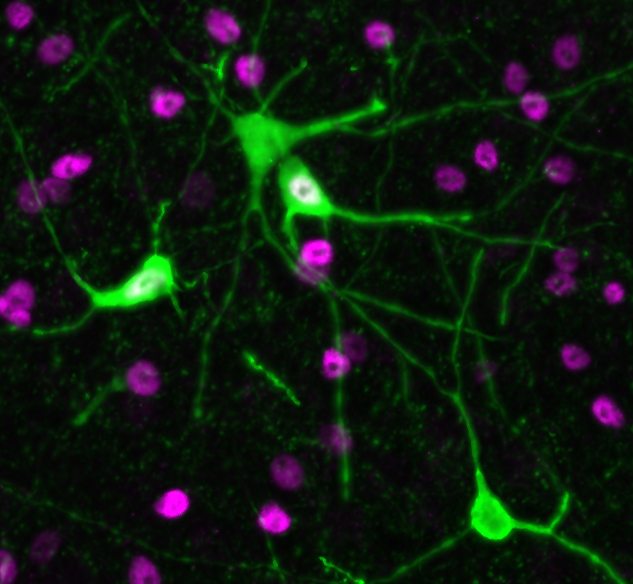
We are delighted to announce that the MRC Brain Network Dynamics Unit will partner with US company FORMA Therapeutics, and 4 other departments at the University of Oxford, in a substantial multi-year research collaboration to advance the development of treatments for neurodegenerative diseases.
The new FORMA/Oxford collaboration brings together FORMA’s expertise in small-molecule drug design and development with the University teams’ knowhow in neuroscience and disease mechanisms. In contributing to this collaborative venture, the MRC Unit will leverage its leading expertise in high-resolution in vivo phenotyping of rodent models of neurodegenerative diseases.
The collaborative research programme will focus on the identification, validation and development of inhibitors of deubiquitinating enzymes (DUBs) for the treatment of neurodegenerative diseases. DUBs are a group of over a hundred proteases that play important roles in biochemical processes that are critical to normal cell function. Targeting these enzymes could provide a means to alleviate the effects of disrupted cellular events that are linked to the progression of neurodegenerative disorders, such as Parkinson’s disease.
Unit Deputy Director Professor Peter Magill, who will lead the Unit’s contribution to the collaboration, commented, “The Unit has long recognised that partnering with industry can bring significant added value, not only in terms of knowledge exchange but also in creating synergy and growing capacity. Our new collaboration with FORMA Therapeutics presents an exciting opportunity to build on the Unit’s strong portfolio of translational neuroscience research, with a view to delivering novel therapeutic interventions for brain diseases.”
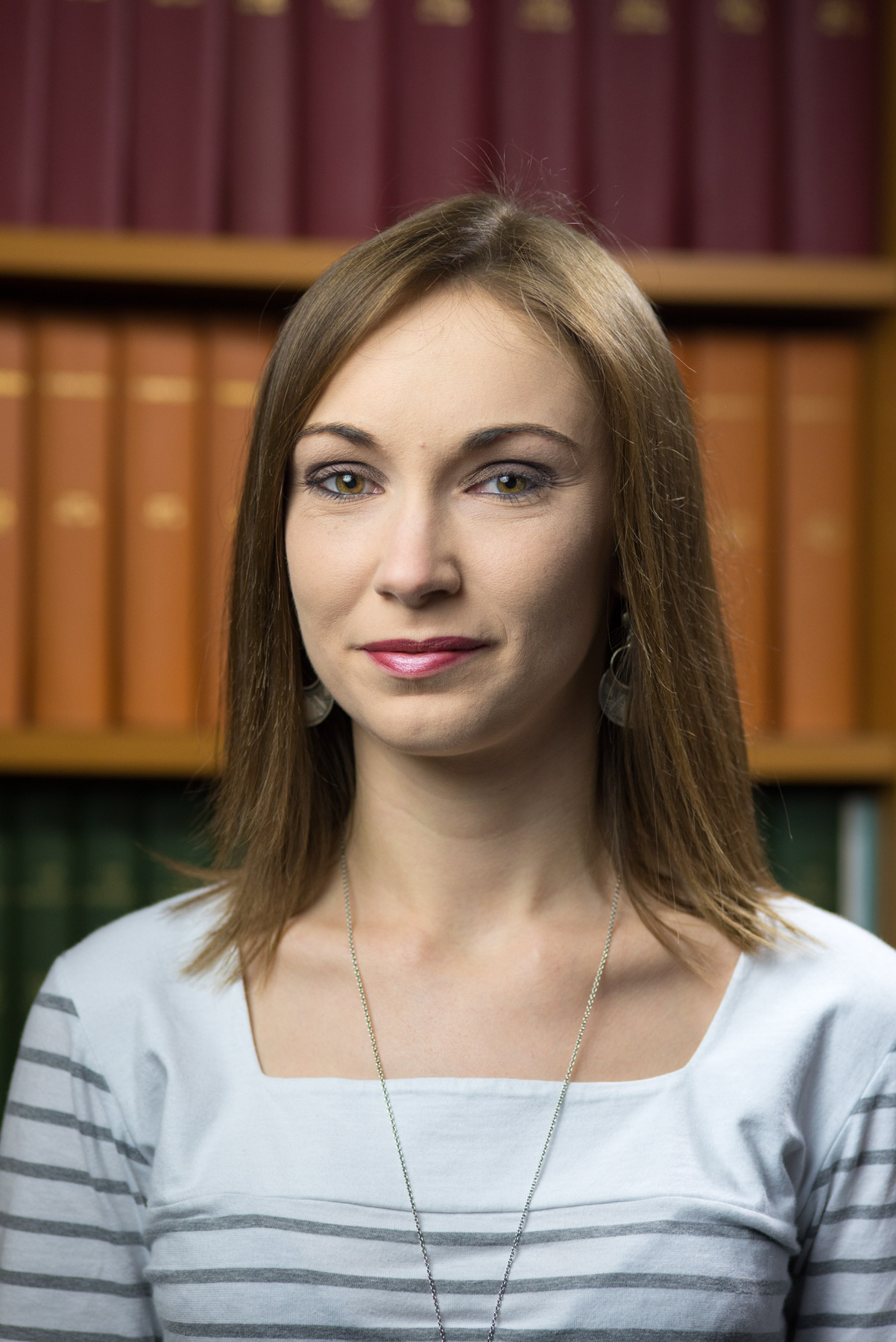
We are pleased to welcome Dr. Laura Lefevre to the Unit as a Postdoctoral Neuroscientist in the Dupret Group.
Laura graduated in Neuroscience in 2013, and completed her Ph.D. in 2016 at the Lyon Neuroscience Research Centre (CNRS, INSERM, University of Lyon, France). Laura's doctoral research focused on the significance of sniffing variations for the olfactory system and the impact of learning. Her studies combined in vivo electrophysiology, in particular for studying the coordination of neuronal activities, and behavioural approaches. In 2017, Laura started work as a Postdoctoral Scientist at the University of Reading, where she characterised in vitro hippocampal activities in a mouse model of epilepsy.
Here in the Unit, Laura will be investigating neuronal dynamics across the hippocampus and connected subcortical circuits during the expression of adaptive behaviours.

We are pleased to welcome Ayaka Kato to the Magill Group for a period of advanced research as part of her M.Sc. in Neuroscience at the University of Oxford.
During Ayaka’s time in the Unit, she will work closely with Dr Emilie Syed on a project investigating the impact of ‘optogenetic’ stimuli on the firing of midbrain dopamine neurons as well as on dopamine release in striatum.
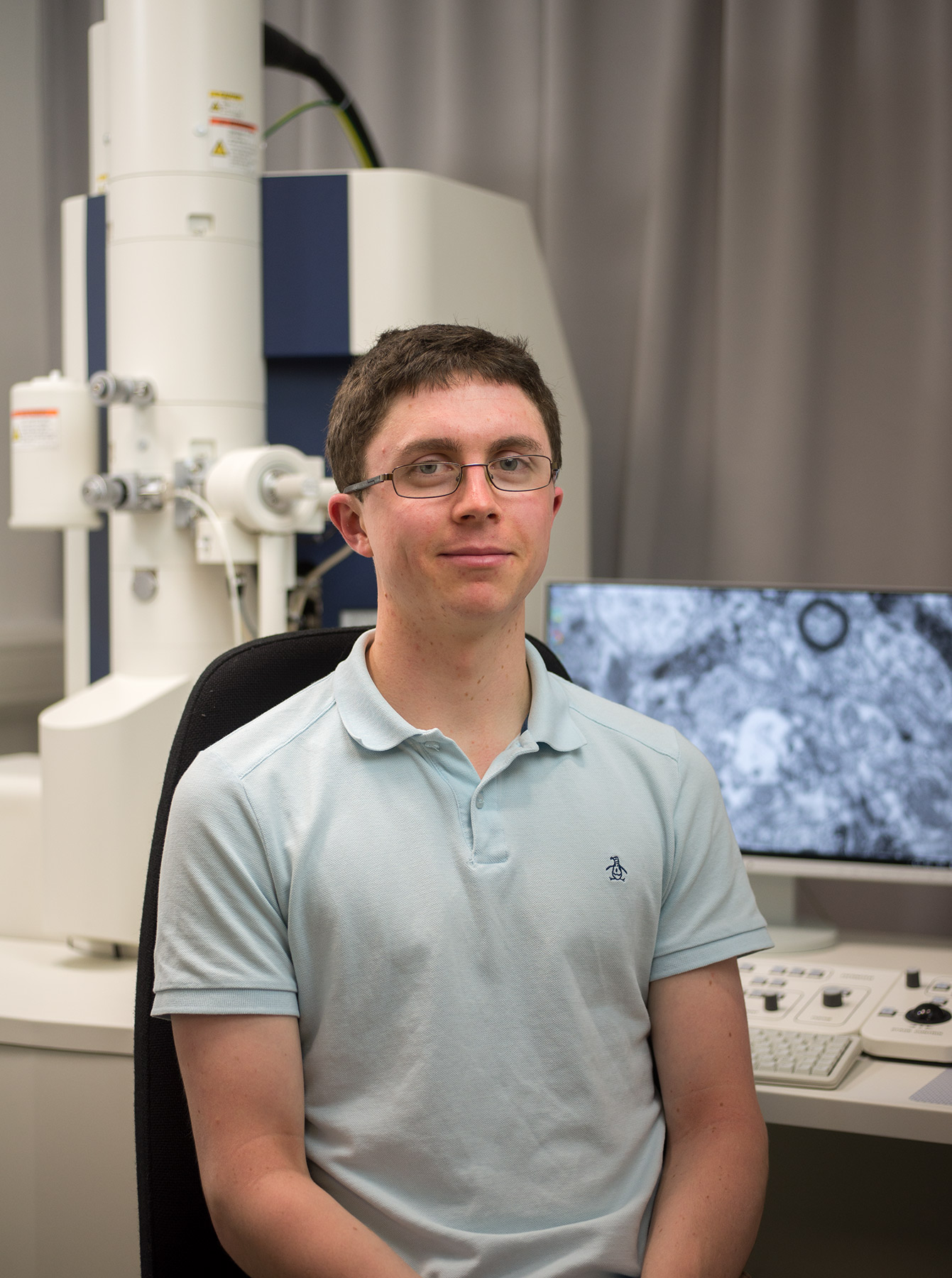
We are pleased to welcome David Dinneen for a period of advanced research as part of his M.Sc. in Neuroscience at the University of Oxford.
During David’s time in the Unit, he will work closely with Dr Natalie Doig and Dr Paul Dodson on a project investigating the structural properties of midbrain dopamine neurons in a model of experimental Parkinsonism.
